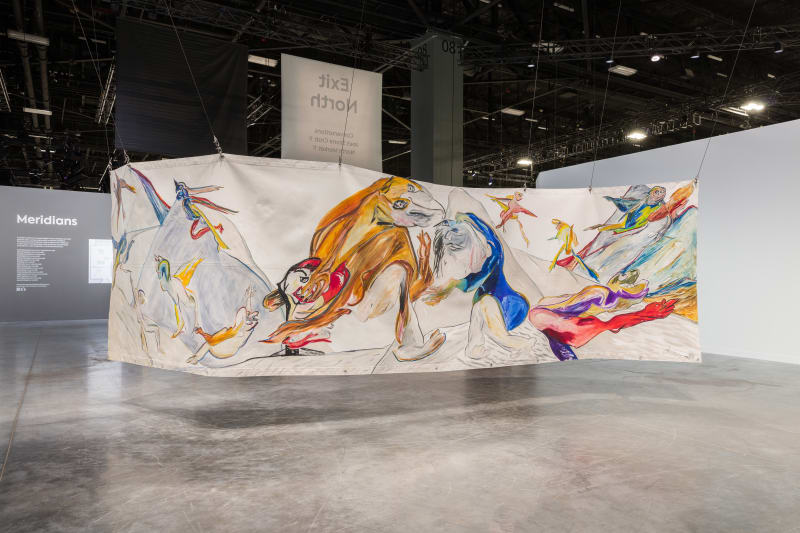Jacqueline de Jong was born in 1939, Hengelo, The Netherlands. She died in 2024 in Amsterdam, The Netherlands. Over a career spanning more than six decades, her work explored the violence, banality, eroticism and humour of human interaction. Painting has been the foundation of her practice, which also encompasses drawing, sculpture, printmaking, jewellery and artist books.
Forced to flee Holland during the war, de Jong’s early life was marked by social upheaval. She became involved with radical artists and thinkers of the 1960s, most notably with the Situationist International (SI) and Gruppe SPUR. When de Jong was excluded from the SI, along with the other visual artists, she founded The Situationist Times. Hailed as one of the most important and experimental journals of its time, the publication offered opportunity for collaboration between writers, poets and visual artists. As editor and publisher, she produced six issues between 1962 and 1967. In 1968 she marched with the students in Paris, printing artist posters in support of the movement.
De Jong’s painting practice is diverse: declining to progress in a linear fashion, she often doubled back and revisited formal and conceptual concerns. Early works from the 1960s include expressive abstraction, the violent and humorous Accidental Paintings and Suicidal Paintings series, and the witty and erotic Private Lives of the Cosmonauts. Themes of sexual desire, war and violence continue throughout, with the Série Noire of 1980s, the Paysages Dramatiques and paintings of the 1990s that address conflict more explicitly. During the 2010s, de Jong took inspiration from the monstrous shapes of overgrown potatoes to explore the humorous and grotesque side of nature whilst experimenting with new materials and photographic printing. Her most recent work returned to oil painting and a re-examination of early themes that have new resonance in the present day.
